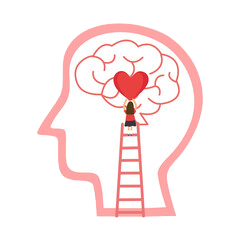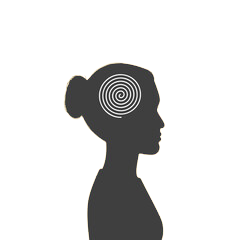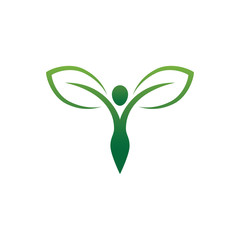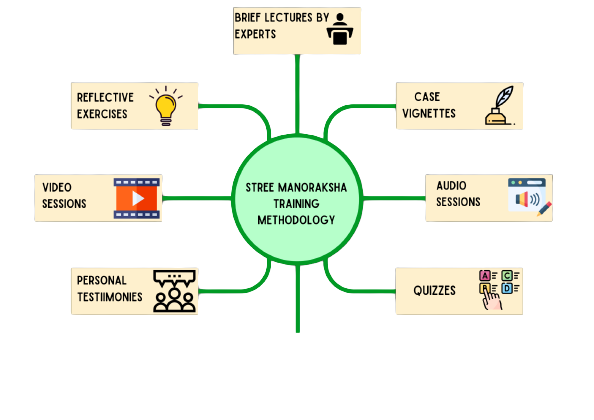What is Gender Based Violence?
Gender-Based Violence (GBV) and Violence against Women (VAW) and children are major public health concerns. It is known to impact physical, reproductive and mental health negatively. The mental health consequences of violence and abuse can be severe. GBV, specifically Domestic Violence (DV) or Intimate Partner Violence (IPV), has been shown to be associated with depression, anxiety, panic, post traumatic stress disorder, suicide risk and impacts children who may witness it at home. Overall, violence and trauma may impact a woman’s quality of life and essentially impair functioning and self-efficacy.
Women in India have several resources to access help when they face violence. There are government run helplines, One Stop Centers, and Non-Governmental agencies that provide legal and emotional help and temporary shelter. There is a need for these services to be sensitive to the psychological needs of women facing violence and to be able to provide culturally informed and effective interventions that are context-specific.


Why Project Stree Manoraksha?
Project Stree Manoraksha is an initiative by the National Institute of Mental Health and Neurosciences (NIMHANS), funded and supported by the Ministry of Women and Child Development, Government of India. It aims to develop and strengthen trauma-informed mental health care in One Stop Centres (OSCs) by training counsellors and other staff, including caseworkers, centre administrators, paralegal and paramedical staff, multi-purpose workers, security guards, and other team members. This initiative will enable every woman facing gender-based violence who approaches the OSCs to receive empathetic, supportive and evidence-based primary mental health care and counselling services.
OUR FOCUS AREAS

Different types of violence against women
Complex trauma and multi-generational trauma and its impact;
Feminist theories and principles to guide the assessment and intervention
Sexual assault, Child sexual abuse, Marital rape;
Challenges in dealing with sexual abuse


Mental health consequences of Intimate Partner Violence: Anxiety,
Depression, Post Traumatic Stress Disorder, Dissociation, Psychosis, Suicide risk; Identification and Assessment of symptoms
Referrals for mental health

The psychological impacts of trauma, abuse and violence such as guilt, shame, other emotions; Patterns of defenses, irrational cognitions, and addictive behaviors

Psychological Interventions – distress tolerance, anger management, conflict resolution, assertiveness training, relaxation techniques, behavioral activation, crisis intervention and supportive counselling

Violence in family context, socio cultural and individual factors that contribute to violence, negotiation of non – violence in joint meetings

Ethical and Professional issues of Counselling
Issues like confidentiality, transference and counter transference

Training will include specific modules for various groups of women who face violence – women with disabilities including mental illness, pregnant and postpartum women, women from LGBTQIA+ groups, older women and women who have been trafficked. Training will also focus on helping children who are affected by domestic violence
How the Training Will Be Conducted?
The training will be conducted online synchronously and asynchronously and designed to occur in a phased manner. The Stree Manoraksha training methodology will include: brief lectures by experts, reflective exercises, case vignettes, video and audio sessions, personal testimonies and quizzes. The participants will also receive study materials. After completing the training, the participants will receive a certificate of completion for basic and advanced
courses.

TRAINING PROGRAMS
Basic Training:
The training will focus on the mental health consequences of violence against women ranging from common mental distress to severe mental disorders and suicide risk assessment, psychological fist aid, and couple counseling. One session will also focus in-depth on sexual assault, its impact and the primary intervention that can be provided to the women facing sexual violence and seeking help. Additionally, the training will focus on self-care of the staff, targeting burnout compassion fatigue,and secondary trauma. Keeping in mind the receiving mental health services, the tele counseling process,a dn its effectiveness will also be discussed.

Advanced Course
In addition to the topics covered in basic training, the advanced course module will focus in great detail on multi-generational trauma and its impact, the emotional, cognitive, behavioral effect of trauma, the mental disorders implicated as a result of trauma caused by violence and its detailed assessment, primary intervention, basic counselling process, and referral pathways. The sessions will also focus on child sexual abuse, marital rape, sexual assault, and trauma-informed care. Detailed discussion on various counselling techniques like distress tolerance, anger management, conflict resolution, assertiveness training, relaxation techniques, behavioral activation, crisis intervention, and supportive counselling will be done in the advanced training. Finally, the training will also focus on ethical and legal guidelines of counselling. Issues like confidentiality, transference, and counter transference will also be highlighted in the session.
The training will also focus on the various family dynamics, social and cultural underpinnings, and challenges in violence against women in the family and society. Feminist theories and perspectives will be highlighted in this regard. This course will address the unique needs and inclusive guidelines for marginalized populations such as LGBTQIA+, sex workers, women with sensory, physical, and mental disabilities facing gender-based violence.



